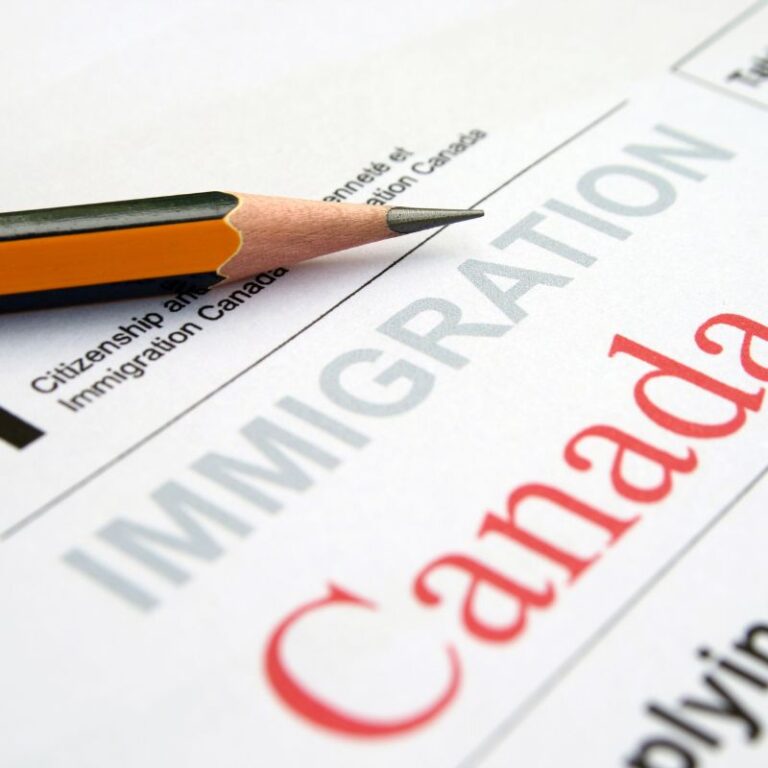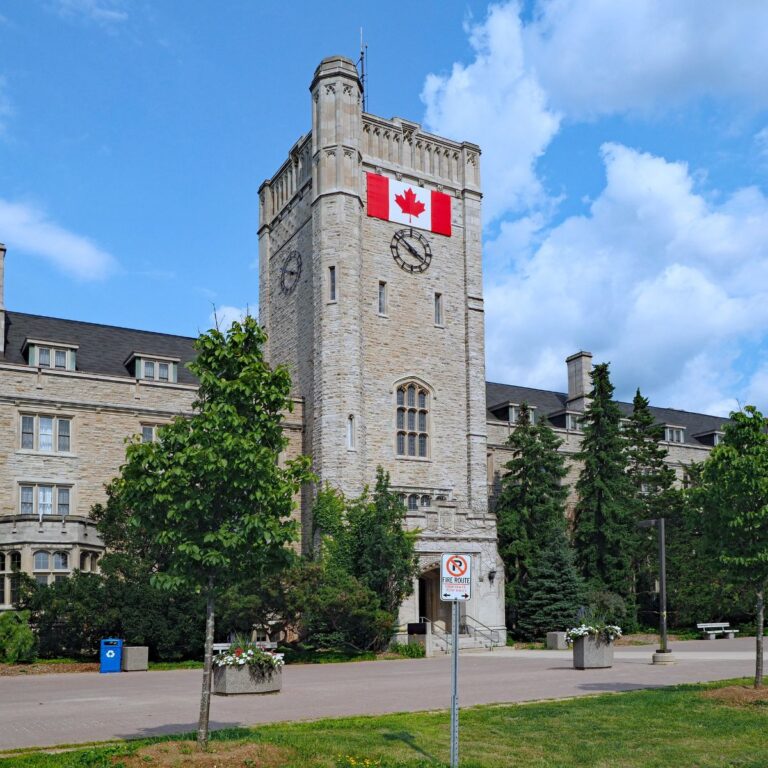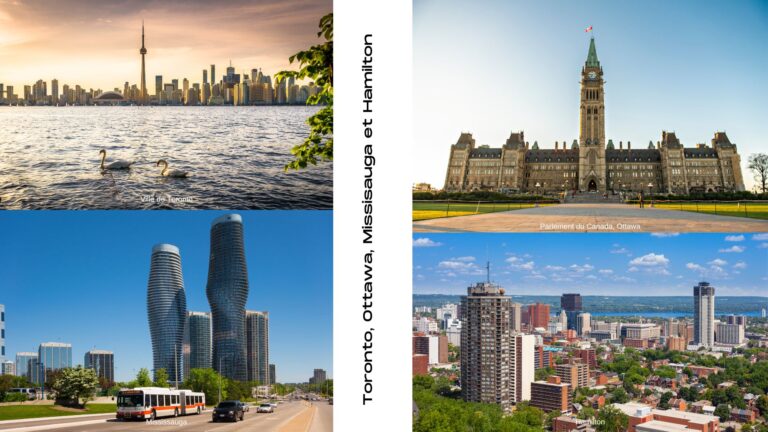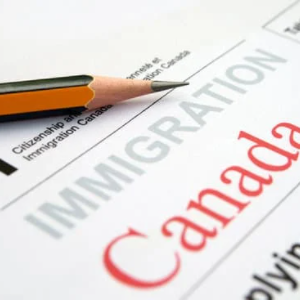Francophone immigration to Canada outside Quebec: Changes in 2024 and Outlook for 2025

Francophone immigration outside Quebec is at the heart of the Canadian government's priorities. With increased targets, innovative programs and measures specifically tailored to Francophones, the years 2024 and 2025 mark a decisive turning point. These initiatives not only address a labour shortage, they also aim to revitalize French-speaking minority communities, while strengthening the country's linguistic duality.
For French speakers around the world, these changes represent a unique opportunity to establish themselves in an environment where their linguistic and professional skills are highly valued. This article explores recent developments, the benefits on offer and the many programs available to accompany these candidates on their immigration journey.
Why is Francophone immigration so important to Canada?
Francophone immigration outside Quebec is of strategic importance to Canada. In an officially bilingual country, it helps reinforce linguistic duality while meeting pressing economic and social needs. The Canadian government, aware of demographic challenges and the need to preserve French as a living language across the country, has set ambitious targets for francophone immigration.
Maintaining linguistic duality and cultural heritage
Canada is distinguished by its official bilingualism, which is not only a founding value, but also an asset on the international stage. However, outside Quebec, French-speaking minority communities are facing considerable pressures, including linguistic assimilation and population decline. Francophone immigration thus becomes an essential lever for preserving these communities, their vitality and their culture.
Through initiatives such as the Programme d'appui à l'immigration francophone (PAIF))The federal government supports projects aimed at integrating French-speaking newcomers into minority communities. This support takes the form of French-language settlement services and efforts to promote the economic and social inclusion of immigrants.
Responding to the skills shortage
Like many developed countries, Canada is facing a labor shortage in key sectors such as healthcare, information technology and services. Francophone immigration plays a crucial role in solving this problem, in particular by attracting qualified professionals ready to make an immediate contribution to the Canadian economy.
Because of their mastery of French, Francophones are particularly sought after in provinces like Ontario, New Brunswick and Manitoba, where significant efforts are being made to offer services in both official languages.
Ambitious targets for 2025
The 2025-2027 Immigration Levels Plan unveiled in October 2024 reaffirms Canada's commitment to Francophone immigration. While the previous 2023 target of 4.4 % of French-speaking immigrants outside Quebec seemed difficult to achieve at the outset, the government not only reached this threshold, but also decided to aim even higher, with an ambitious target of 8.5 % of French-speaking immigrants in 2025.
This increase reflects a clear political will: not only to meet the needs of Francophone communities, but also to harness the economic potential of Francophone newcomers.
Local and national impact
The benefits of Francophone immigration extend far beyond minority communities. Nationally, it enriches the country's cultural diversity, strengthens economic exchanges with French-speaking international partners, and supports innovation in various sectors. Locally, it enables small communities to attract new talent, maintain their French-language schools, and offer services adapted to their populations.
In short, Francophone immigration to Canada outside Quebec is not just a question of language or culture, but a pillar of economic growth, social inclusion and the sustainability of Canadian bilingualism. With strengthened initiatives and increased targets for 2025, Canada confirms its role as a world leader in welcoming Francophones.
Statistics: Express Entry Immigration and Retention of Priority Francophone Candidates in 2024
The Express Entry system, introduced in 2015, is a flagship mechanism for selecting skilled workers wishing to immigrate to Canada. In 2024, this system continues to play a central role in meeting the country's economic needs, while maintaining a priority for applicants with French language skills.
A priority category for francophones
Since the introduction of targeted draws in 2023, candidates with a good command of French have enjoyed priority status on Entrée Express. This measure has been welcomed by Francophone communities outside Quebec, as it enables them to strengthen their workforce and ensure the sustainability of French-language services in minority regions.
In 2024, this approach will continue. French-speaking applicants continue to receive extra points for their proficiency in French, which significantly improves their chances of receiving an Invitation to Apply (ITA). According to available data, these additional points vary between 25 and 50, depending on the level of language proficiency.
Recent targeted draw results
In 2023, targeted draws resulted in more than 15593 French-speaking permanent residents in the economic immigration categories and 19636 in total, representing a significant increase over previous years. This trend is set to continue in 2024, with even more ambitious targets, in line with the 2025-2027 Immigration Levels Plan.
Targeted draws also facilitate the integration of skilled workers in priority sectors, such as :
- Healthcare (doctors, nurses, support workers).
- Information technology.
- Skilled trades, particularly in construction and manufacturing.
Impact of Francophone initiatives
Initiatives such as the Réseau en immigration francophone (RIF) support newcomers throughout their journey. These networks play an essential role in the integration of candidates selected via Entrée Express, by providing them with adapted resources:
- Employment assistance.
- Language and cultural support.
- Access to established French-speaking communities.
In 2024, maintaining French-speaking applicants as a priority group in Entrée Express is part of an overall strategy to achieve the government's ambitious targets, including 8.5 % of French-speaking immigrants outside Quebec by 2025. This measure is essential to consolidate the role of French-speaking minority communities and to address labor shortages across the country.
A few statistics: Targeted draws and highlights in 2024
The year 2024 marks a significant step forward in the promotion of French-speaking immigration outside Quebec. Recent data testify to the impact of initiatives aimed at attracting French-speaking candidates, thanks to targeted draws under Entrée Express. These efforts are part of the federal government's strategy to achieve the ambitious target of 8.5 % of French-speaking immigrants by 2025.
Global data on Francophone immigration in 2024
According to Immigration, Refugees and Citizenship Canada (IRCC), the percentage of French-speaking immigrants outside Quebec continues to rise. In 2023, more than 4.4 % of new arrivals met the French language criteria, meeting and exceeding for the first time the target initially set by the government.
In 2024, this percentage should increase thanks to reinforced measures, including :
- Specific targeted draws for French-speaking candidates.
- Extra points awarded for mastery of French.
- Promotional and awareness-raising campaigns aimed at international Francophone communities.
Targeted circulation statistics for Francophones in 2024
Draws targeting candidates with French language skills in Entrée Express resulted in a significant number of candidates with historically low point thresholds. Here are the details:
| No the invitation round | Date of the print run | Category or set | Number of invited candidates | Minimum number of points |
|---|---|---|---|---|
| 282 | February 1, 2024 | French language skills (Version 1) | 7 000 | 365 |
| 287 | February 29, 2024 | French language skills (Version 1) | 2 500 | 336 |
| 291 | March 26, 2024 | French language skills (Version 1) | 1 500 | 388 |
| 295 | April 24, 2024 | French language skills (Version 1) | 1 400 | 410 |
| 302 | July 8, 2024 | French language skills (Version 1) | 3 200 | 420 |
| 305 | July 18, 2024 | French language skills (Version 1) | 1 800 | 400 |
| 310 | August 15, 2024 | French language skills (Version 1) | 2 000 | 394 |
| 314 | September 13, 2024 | French language skills (Version 1) | 1 000 | 446 |
| 318 | October 10, 2024 | French language skills (Version 1) | 1 000 | 444 |
| 324 | November 15, 2024 | French language skills (Version 1) | 800 | 478 |
| 329 | December 3, 2024 | French language skills (Version 1) | 800 | 466 |
Analysis of minimum thresholds and demand
- The February 1, 2024 was the most generous, with 7,000 invitations and a minimum threshold of only 365 pointsone of the lowest ever recorded for French speakers.
- In comparison, the highest thresholds in 2024 were observed in November (478 points) and December (466 points), reflecting increased competition at the end of the year.
- These draws reflect a growing demand for skilled French-speaking workers, particularly in priority areas.
Trends and outlook for 2025
With the implementation of the 2025-2027 Immigration Levels Plan, efforts to attract French-speaking candidates should intensify further. Maintaining relatively accessible thresholds, combined with additional benefits for francophones, should enable us to achieve the ambitious targets set by IRCC.
These statistics show that Francophones today have a unique opportunity to immigrate to Canada, particularly thanks to Express Entry and its targeted draws.
Benefits for French speakers on Entrée Express
The Express Entry system, the main selection mechanism for skilled workers wishing to settle in Canada, offers significant advantages for French-speaking applicants. These measures are designed to encourage Francophone immigration outside Quebec, and strengthen the vitality of minority communities.
Extra points for mastery of French
One of the main benefits for French speakers is the award of additional points in the Entrée Express Global Ranking System.
- 25 points are awarded to French-speaking candidates with an intermediate level (Canadian Language Benchmark [CLB] 7 or higher).
- This total can reach 50 points for candidates with a good command of French and English (CLB 7 for French and CLB 5 or more for English).
These extra points considerably increase the chances of Francophones receiving an Invitation to Apply (ITA), especially in a context where point thresholds for targeted draws are often competitive.
Priority in targeted draws
Since 2023, the government has introduced targeted draws for candidates with a good command of French. In 2024, these draws continue to favor Francophones by reducing competition with other categories, while offering relatively low point thresholds compared with general draws.
French-speaking customers can enjoy :
- Increased visibility in the applicant pool.
- Better chances of selection for professions in demand.
Access to complementary programs
In addition to the benefits offered by Express Entry, French-speaking candidates often benefit from specific programs in certain provinces, such as priority immigration channels under Provincial Nominee Programs (PNP). These programs work with Express Entry to :
- Meet local labor needs.
- Attract skilled workers capable of contributing to the vitality of Francophone minority communities.
For example, provinces like New Brunswick, Ontario and Manitoba have dedicated initiatives to support the reception and settlement of French-speaking immigrants.
Easier integration into French-speaking communities
The benefits of Entrée Express don't stop at points or targeted draws. Francophones also benefit from a favorable integration framework, thanks to networks and services tailored to their needs:
- Access to French-speaking community organizations to help them settle in.
- Linguistic, cultural and professional support in French.
- Educational opportunities for their children in French-speaking schools.
These resources are essential to ensure smooth integration and a sense of belonging to new communities.
Promoting work-life balance
French-speaking candidates selected via Entrée Express often have the opportunity to settle in regions where the quality of life is high and the cost of living more affordable than in major urban centers. This contributes to :
- Offer a stable and fulfilling work environment.
- Strengthen the vitality of Francophone communities in less densely populated areas.
A call to action for francophones
In short, the Express Entry system offers unique opportunities for qualified French-speaking candidates. With bonus points, targeted draws and resources dedicated to their integration, francophones have a privileged path to building a life in Canada outside Quebec.
Interested parties are encouraged to assess their eligibility now and maximize their chances by taking advantage of these competitive benefits.
Increase in Francophone immigration targets over the 2025-2027 period
The 2025-2027 Immigration Levels Plan marks a major step forward for Francophone immigration to Canada. With significantly increased targets, the government is reaffirming its commitment to supporting Francophone communities outside Quebec, and to achieving a goal of linguistic and cultural diversity across the country.
Ambitious targets for 2025
In response to the concerns of francophone organizations, particularly in provinces like New Brunswick and Ontario, the federal government has set an ambitious target of 8.5 % of francophone immigrants outside Quebec by 2025. This represents a significant increase on the previous target of 4.4 %, which was first achieved in 2023.
This increase reflects a desire to offset demographic decline and strengthen Francophone minority communities.
Reactions from French-speaking organizations
The announcement of these targets has been enthusiastically welcomed by academic and community organizations, such as the Fédération des communautés francophones et acadienne du Canada (FCFA). They see this increase as an opportunity to revitalize francophone communities, which often face challenges such as :
- Declining enrolment in French-language schools.
- A shortage of qualified workers able to offer services in French.
- The weakening of French-speaking institutions in predominantly English-speaking regions.
The heads of these organizations stress that this strategy is essential to ensure the survival and prosperity of Francophones outside Quebec.
Measures to support increased targets
To achieve these objectives, several initiatives have been implemented or strengthened:
- Targeted draws via Entrée Express: Bonus points for French proficiency maintained, and more invitations extended to French-speaking applicants.
- Local partnerships: Collaboration between the federal government and the provinces and territories to develop programs tailored to the needs of Francophone communities.
- Settlement support: Strengthening resources for newcomers, in particular through the Réseaux en immigration francophone (RIF), which offer reception, integration and language training services.
Outlook for 2026 and 2027
In 2026 and 2027, the government forecasts continued growth in the percentage of French-speaking immigrants, with a particular focus on :
- Diversification of source countries for French-speaking immigration.
- Active promotion of immigration opportunities in the French-speaking regions of Africa, Europe and the Caribbean.
- Evaluating and adjusting programs to ensure they effectively meet the needs of minority communities.
A strategy that shapes the future
The increase in Francophone immigration targets is much more than just a figure. It symbolizes a commitment to linguistic equity, the strengthening of official bilingualism, and support for regions often under-represented in major immigration policies.
For Francophones wishing to settle in Canada, this period represents an unprecedented opportunity. As qualified candidates, they benefit from tailored measures that offer them enhanced chances of building a prosperous life in Canadian communities.
Launch of the pilot program for immigration to Francophone minority communities
Canada is strengthening its commitment to Francophone minority communities with the launch of a pilot immigration program specifically designed to meet their needs. Published in the Canada Gazette on December 14, 2024, this program is part of federal efforts to revitalize and support these communities across the country.
Pilot program objectives
This pilot immigration program has been designed to meet several key objectives:
- Attract French-speaking immigrants to regions where the French-speaking population is declining.
- Strengthen the vitality of Francophone minority communities by increasing their demographic weight.
- Encourage long-term settlement of new arrivals through specific social, linguistic and professional integration measures.
Operation and eligibility criteria
The program specifically targets qualified French-speaking immigrants who wish to live and work in regions outside Quebec. Key features include
- Language criteria :
- Candidates must demonstrate a functional command of French (Canadian Language Benchmark [CLB] 7 or higher).
- Priority areas :
- The program focuses on in-demand professions in sectors such as healthcare, education and information technology.
- Establishment support :
- Selected candidates will benefit from enhanced support from local French-speaking organizations, including housing, employment and language training services.
Target regions
The pilot program focuses on regions where Francophone minority communities are most vulnerable. The provinces and territories involved include :
- New Brunswick (the only officially bilingual province).
- Ontario, especially rural areas like Prescott-Russell and Sudbury.
- The Prairies (Manitoba, Saskatchewan) and Western Canada (Alberta, British Columbia), where Francophone communities represent a small minority but have significant growth potential.
Employer incentives
To encourage local companies to recruit French-speaking workers, the program offers specific incentives, such as :
- Simplified access to the Temporary Foreign Worker Program for employers in French-speaking regions.
- Grants to help train and integrate French-speaking employees into bilingual workplaces.
Expected impact on Francophone communities
This pilot program is designed to have a tangible and lasting impact:
- Increasing the local francophone population: Targeted regions could benefit from a significant demographic influx, contributing to the survival of francophone schools, services and institutions.
- Strengthening community ties: The arrival of new immigrants will enrich the social and cultural fabric of communities.
- Local economic stimulus: By attracting skilled workers, targeted regions will be able to fill labor shortages while stimulating their economies.
A vision for the future
The launch of this pilot program reflects an ambitious vision: to make Canada a world leader in the integration of Francophones in a bilingual context. The program will be evaluated periodically to adjust its criteria and maximize its effectiveness.
For Francophones who aspire to a life in Canada, this program represents an exceptional opportunity to settle in regions where their linguistic and professional skills are not only valued, but essential to local development.
Francophones, these changes are opportunities!
Recent developments in Canadian immigration offer unique opportunities for Francophones wishing to settle outside Quebec. Whether through targeted draws, pilot programs or increased immigration targets, these initiatives place French-speaking candidates in a privileged position to realize their life plans in Canada.
Greater recognition of language skills
The Canadian government is increasingly recognizing mastery of French as a strategic skill. This recognition translates into :
- Bonus points for Entrée Express, significantly increasing your chances of receiving an Invitation to Apply (ITA).
- Targeted draws reserved exclusively for French-speaking candidates, with point thresholds that are often more accessible.
These measures testify to the importance Canada places on the French-speaking world, and offer a significant competitive advantage to qualified candidates.
Programs tailored to specific needs
Recently introduced programs, such as pilot program for immigration to francophone minority communitiesare specially designed for French speakers. These initiatives make it possible to settle in regions where :
- Job opportunities abound, particularly in the healthcare, education and skilled trades sectors.
- Local French-speaking communities offer linguistic, cultural and social support to facilitate integration.
Provincial initiatives, such as those in New Brunswick and Ontario, further strengthen the chances of French-speaking candidates to settle in dynamic regions.
Exceptional quality of life
Settling in Canada outside Quebec means enjoying an exceptional quality of life:
- Bilingual environment: The target regions offer a unique cultural experience, where Francophones can live and work in French while learning English.
- Work-life balance: Rural and semi-urban areas often offer a peaceful living environment and more affordable living costs than major metropolises.
- Access to quality services: Local Francophone networks play a key role in the integration of newcomers, facilitating access to educational, health and settlement services.
Maximize your chances with proactive planning
For French speakers interested in these opportunities, it is essential to plan their immigration project carefully:
- Evaluate your eligibility: Check specific criteria for programs such as Express Entry, Provincial Nominee Programs (PNP) or the pilot program for Francophone communities.
- Improve your qualifications: Invest in learning or perfecting your English to maximize your chances.
- Find out about target regions: Identify the provinces and territories offering the best opportunities for your skills and personal aspirations.
An opportune moment for francophones
These changes represent a real window of opportunity for French speakers around the world. Whether you're an experienced professional, a recent graduate or an entrepreneur, current and future immigration policies are designed to welcome your talents and ambitions.
Don't wait any longer to explore these opportunities. With careful planning and the right partners to support you, you can turn your dream of living in Canada into reality.
Other opportunities: Mobilité francophone, federal and provincial programs
In addition to flagship programs such as Entrée Express and the pilot program for Francophone communities, other flexible and advantageous options are available to Francophones interested in immigrating to Canada. These programs offer solutions tailored to different profiles and aspirations, but require compliance with specific eligibility criteria.
Francophone mobility: a simplified path for foreign workers
The Mobilité francophone program is a unique initiative that enables Canadian employers to recruit French-speaking or bilingual workers without going through a Labour Market Impact Assessment (LMI). This program offers several advantages:
- Accelerated process: Fewer administrative hurdles for employers and faster approval of work permits.
- No need for proof of shortage: Unlike other programs, employers don't have to demonstrate that no Canadian was available for the position.
- Geographic eligibility: This program is aimed at Francophones wishing to work outside Quebec, thereby strengthening the presence of the French language in other provinces and territories.
To be eligible, candidates must :
- Demonstrate sufficient proficiency in French to practice their profession in that language.
- Obtain a valid job offer in a qualified profession.
Federal programs for Francophones
The Canadian government also offers other federal programs that encourage Francophone immigration:
- Federal channels for refugees and international students: Francophones who have studied in Canada or have work experience in the country often benefit from bonus points for their mastery of French.
- Programs for entrepreneurs and investors: Some federal programs, such as those focused on innovation or business start-ups, use linguistic diversity to strengthen French-speaking regions.
Provincial programs (PCP) with Francophone components
Every Canadian province has Provincial Nominee Programs (PNPs) to meet the specific needs of their local labor markets and communities. Several provinces include components or initiatives specifically dedicated to Francophones:
- Ontario: The Francophone Skilled Worker stream in Ontario's PNP is designed to attract Francophones to in-demand occupations, with a particular focus on the technology and healthcare sectors.
- Manitoba: The proactive Francophone immigration program encourages Francophones to settle in rural communities.
- New Brunswick: The only officially bilingual province, New Brunswick offers incentives for skilled French-speaking workers, particularly in public services and education.
These provincial programs often collaborate with Entrée Express, offering additional points to candidates who have received a provincial designation.
Eligibility criteria: an unavoidable step
Although the opportunities are numerous, it is crucial for French-speaking applicants to meet the specific eligibility criteria for each program:
- Language proficiency: Proof of proficiency in French, often assessed by tests such as the TEF or TCF, is essential to qualify for bonus points or access to dedicated programs.
- Professional experience and qualifications: Applicants must demonstrate that they possess the skills necessary to meet the requirements of the professions in demand.
- General eligibility: Health, safety and migratory status criteria must also be met.
Numerous opportunities for French speakers
These programs, whether federal or provincial, reinforce Canada's attractiveness to francophones from around the world. By choosing the program best suited to their profile, candidates can maximize their chances of immigrating, while contributing to the vitality of French-speaking communities outside Quebec.
For Francophones who want to embark on this adventure, careful planning and professional guidance can make all the difference. Are you ready to explore these possibilities? An immigration specialist can guide you to identify the ideal path and optimize your chances of success.
Contact us: your partner in French immigration outside Quebec
Are you a Francophone looking to take advantage of the many immigration opportunities in Canada outside Quebec? Our firm, specialized in French-speaking immigrationis there to support you every step of the way.
Our services include :
- A personalized assessment your eligibility for various federal, provincial and Francophone-specific programs.
- Comprehensive support to maximize your chances in processes such as Entrée Express, Mobilité francophone or Provincial Nominee Programs (PNP).
- Dedicated support for settlement and integration into a French-speaking community in Canada.
How do I get started?
- Fill in our online pre-assessment form for an initial analysis of your profile.
- Make an appointment with a regulated Canadian immigration consultant for an initial consultation.
- Open your file and let us guide you to a successful immigration project.
Together, we can turn your ambition to live and work in Canada into a reality. Contact us today to start your journey towards a new life in a dynamic and welcoming French-speaking community!
Conclusion
Recent changes in Canadian immigration reflect the country's commitment to the Francophonie and its minority communities. Whether through Express Entry, pilot programs or provincial initiatives, francophones now have concrete, advantageous means of realizing their life plans in Canada.
However, these opportunities require careful preparation, a clear understanding of the eligibility criteria and sometimes professional guidance to maximize your chances of success.
Our firm, experts in French-speaking immigration outside Quebec, is at your side to guide you. Fill out our pre-assessment form today, or book an initial consultation. Together, we can build your future in Canada's dynamic and welcoming francophone community.







